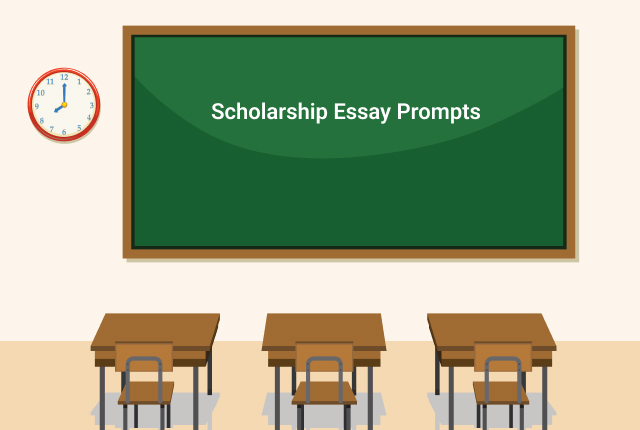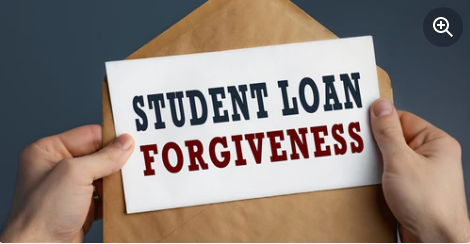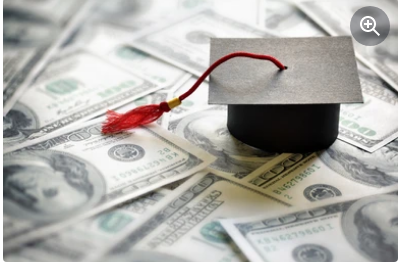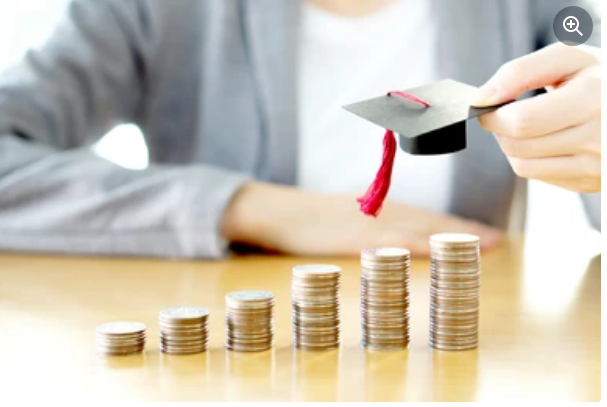Student Loan
Guide to Student Loan Forgiveness in California
The most populous and one of the most costly states in the US in California.
The average student debt balance in the Golden State is above $37,000, which is among the highest figures.
California will have more than 2.7 million college students enrolled by 2022, and the state’s massive student debt is a result.
Fortunately, a number of federal and state forgiveness programs are available to California college students, allowing them to reduce their student loan debt.
This article will look into each of these programs individually.
See Also: Guide To Central Research Student Loan: All You Need To Know
Student Loans in California
Before President Biden’s promise of $10,000–$20,000 in federal assistance takes effect, the average borrower in California would have debts totaling over $37,000, as we already reported.
Also, to clarify the situation even further, CA is ranked 13th in terms of average debt per borrower.
Nearly 10% of Californians have unpaid debt, with over 3.8 million borrowers across the state.
Let’s change gears and talk about the CA student loan forgiveness programs in California with this in mind.
How Does the California Student Loan Forgiveness Program Work?
The criteria for qualifying and reward caps vary amongst student loan forgiveness programs.
To be eligible for a California student loan forgiveness program, however, you must generally:
- Give evidence that you live in California or that you have a license to practice your profession there.
- To be eligible for a CA student loan forgiveness program, you must meet a number of requirements. This frequently entails a service obligation, such as working in a California neighborhood with a high need, especially for loan forgiveness programs for healthcare providers.
- Verify that the California student loan forgiveness program you’re pursuing is compatible with the sort of student loan you have. While some programs might only enable specific federal loans, others might let students include both federal and private student loan debt.
The remaining student loan debt of borrowers who continue to be in good standing with the program, have educational loans that qualify and finish the service agreement may be forgiven.
Also See: Guide to MBA Student Loan: All You Need To Know
Programs for Federal Student Loan Forgiveness in California
The following student debt repayment help programs are available to graduates of colleges in California and all other states:
- Income-Driven Repayment
- Public Service Loan Forgiveness
- Teacher Loan Forgiveness
1. Income-Driven Repayment
If Californians are having problems paying their student loans in full and on time, they may choose to enroll in one of the four income-driven repayment programs the federal government offers.
In accordance with your salary and family size, these programs—IBR, ICR, PAYE, and REPAYE—will determine how much you can afford to pay each month in order to lower your payments.
Your remaining balance will be discharged following 20–25 years of payments.
2. Public Service Loan Forgiveness
The federal PSLF program may be available to Californians who work in public service positions for organizations or the government.
Following 120 eligible monthly payments made in accordance with a qualifying repayment plan, PSLF gives student debt forgiveness (the four income-driven repayment plans just mentioned).
Imagine being on an income-driven repayment plan, but for only 10 years rather than the usual 20 to 25 years.
Read More: Guide to Navy Federal Student Loan: All You Need To Know
3. Teacher Loan Forgiveness
Teachers in California may be eligible for a student debt reduction of $5,000 or $17,500, depending on the subject they teach.
The nicest aspect is that it’s simple to meet the eligibility conditions and understand them.
Typically, in order to be helped, you must:
- Become a lecturer
- Possess at least five full academic years of experience
- Possess a full license in the state where you work
You should make sure to select the plan that is most suitable for your circumstances because many CA teachers will be eligible for both PSLF and TLF.
However, in general, teacher loan forgiveness might be a fantastic choice for you if you are almost done paying off your student debt.
California Student Loan Forgiveness Programs
California, like the majority of other states, offers its own state-sponsored programs to residents who live there. Following that, we will talk about:
- California State Loan Repayment Program (SLRP)
- CDA Foundation Student Loan Repayment Grant
- CA Dental Corps LRAP
- Steven M. Thompson Physician Corps Loan Repayment
Check: Does Paying a Student Loan Build Credit
1. California State Loan Repayment Program (SLRP)
Primary care physicians (PCPs), dentists, dental hygienists, physician assistants, nurse practitioners, nurse midwives, pharmacists, and behavioral health providers are eligible for up to $50,000 in loan forgiveness through this program if they work in a state-designated area where their is a shortage of health professionals (HPSA).
Naturally, there are a number of prerequisites to meet in order to be eligible for this forgiveness, such as:
- You must be a citizen of the United States.
- Possessing a California medical license in its entirety
- Not being subject to any additional service obligations or federal debt judgments
- Present employment or a job offer at a location recognized by the HPSA
For individuals who choose to work forty hours per week (full-time), the SLRP program has a two-year full-time service requirement or a four-year full-time service requirement for those who choose to work part-time.
You may be eligible for an extension after your initial service contract expires, but the decision will be up to the program reviewers.
For employees who continue to work at approved sites under program extensions, the California SLRP currently grants the following forgiveness amounts:
- Year 1: $20,000 for full-time, $10,000 for half-time
- Year 2: $20,000 for full-time, $10,000 for half-time
- Year 3: $10,000 for full-time, $5,000 for half-time
- Year 4: $10,000 for full-time, $5,000 for half-time
The California Department of Health Care Access and Information has further details about this program (HCAI).
It’s simple to apply for the state’s SLRP, and you can do it entirely online.
To begin, you only need to register an HCAI account. Applications are due on September 15 of each year.
Check Also: Guide to Rhode Island Student Loan Authority: All You Need To Know
2. CDA Foundation Student Loan Repayment Grant
Increased access to dental treatment in underserved and underrepresented communities of California is the goal of this grant, which is being offered by the California Dental Association.
As a result, it provides qualified California dentists with the chance to lessen the financial burden of their education up to that point, with the potential to earn $250,000 in student loan forgiveness over the course of five years.
The program is extremely competitive, and normally only one winner is given entrance each year.
Graduates of predoctoral dental programs with a DDS or DMD degree and who have received CODA accreditation are eligible for the program.
Additionally, you qualify if you graduated within the last three years from an advanced dentistry program that has received CODA accreditation.
The following criteria are also necessary to qualify:
- Possess a license to practice dentistry in California
- Being a citizen or lawful resident of the United States
- Possess unpaid federal or private student loans
In addition to these minimum requirements, you must be willing to commit to practicing dentistry for five years in an HPSA area or at any other underserved location on the CDA Foundation’s list.
Your service requirement must include providing active treatment to California Medicaid recipients for at least thirty hours each week (Medi-Cal program).
3. California Dental Corps Loan Repayment Program
For dentists in The Golden State who meet the requirements, there is a program called CA Dental Corps LRAP.
Participants must be willing to commit to working 36 months straight in an underprivileged dental community.
If you want to participate in the program, you must:
- Be a California dentist with a current license
- Speak a language that meets the Medi-Cal threshold
- Be ready to fulfill additional eligibility requirements
Read More: Guide to Juno Student Loan: All You Need To Know
4. Steven M. Thompson Physician Corps Loan Repayment
The Steven M. Thompson Physician Corps Loan Repayment Program offers physicians up to $105,000 in student loan forgiveness in exchange for a three-year full-time service commitment (which may be extended).
Candidates must be licensed to practice as doctors or surgeons in the fields of osteopathic or allopathic medicine.
Accepted candidates will also possess the following:
- Federal or private student loans that qualify
- Possess a medical degree or a license to practice medicine in California.
- Exercise outpatient medicine
You must finish your service obligation in a primary care HPSA or PCSA for the Steven M. Thompson program, just like the other two CA programs we’ve discussed.
This covers FQHCs, rural centers, and tribal health clinics as well.
Editor’s Pick: Guide To Smart Option Student Loan: All You Need To Know
Student Refinancing
The likelihood that you won’t get accepted into any of the programs covered in this article is very high.
It’s crucial to understand that you still have options.
In fact, if you currently have private debt, private refinancing can be a terrific choice for you.
Similar to refinancing a home, doing so can reduce your monthly payments by hundreds of dollars, cut years off your payback schedule, or even do both, depending on the loan term you choose.
Conclusion
In conclusion, Splash Financial and LendKey are two so-called lenders but are really marketplaces that let you compare your anticipated rates with those of numerous lenders, therefore we advise you to start your rate shopping there.
One of the benefits of using Splash in particular is that you may get your anticipated interest rate in around two minutes without having your credit score suffer.
Also, Because you won’t receive a hard credit check until you accept an offer, this is true.
Whichever strategy you go with, it’s crucial to keep in mind that there are always options available to you for reducing your monthly bills and payments.
Therefore, always keeping an eye out is crucial.
You might want to check this: Guide To Taxes on Student Loan Forgiveness: All You Need To Know
References
Our Recommendation






